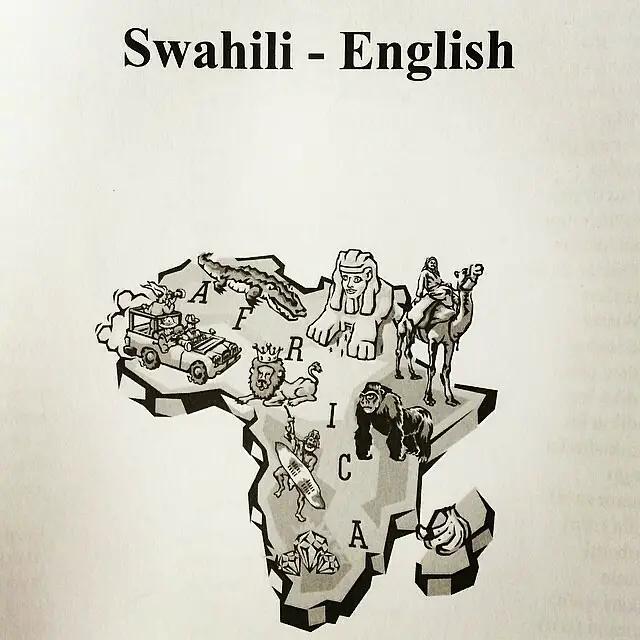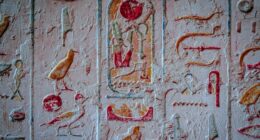Swahili refers to a coastal culture in East Africa with a mix of Arabic and Bantu languages, Kiswahili is the official language spoken in Kenya, Tanzania, Uganda, Rwanda, Burundi and parts of Somalia.
What is Swahili?
Swahili, also known as Kiswahili, is a Bantu language that has its origins in East Africa. It is the official language of Tanzania and Kenya, but is also spoken in many other African countries such as Uganda, Rwanda and even the Democratic Republic of Congo.
Swahili originated on the coast of East Africa around 1,000 years ago when Arab traders began trading with local Bantu-speaking communities. Over time, Swahili developed into a distinct language with influences from Arabic and other languages spoken in the region.
Today, Swahili has become one of the most widely spoken languages in Africa. In fact, it’s estimated that over 100 million people speak some form of Swahili worldwide! This can be attributed to its widespread use as a lingua franca (a common language used for communication between different groups) throughout much of East Africa.
Swahili plays an important role not just as a means of communication but also as a cultural symbol for many communities across sub-Saharan Africa.
What is Kiswahili?
Kiswahili is an African language that has gained popularity across the globe for its simplicity and versatility. It is a Bantu language with Arabic influences, which explains why it has borrowed some words from Arabic. The name Kiswahili comes from “ki-” which means language and “Swahili” which denotes people of the East African coast.
Kiswahili is spoken in various countries including Kenya, Tanzania, Uganda, Rwanda, Burundi and parts of Somalia and Mozambique. It is also used as a lingua franca in some parts of Africa due to its ease of learning.
In terms of grammar, Kiswahili has 16 noun classes each with different prefixes indicating singular or plural form. Its sentence structure follows subject-verb-object order similar to English. Compared to other African languages like Zulu or Xhosa that have click sounds difficult for non-native speakers to make; Kiswahili does not have such challenging features.
Learning Kiswahili can open doors to business opportunities in East Africa and enhance one’s cultural understanding of this region of the world.
Swahili Vs. Kiswahili – Key differences
The terms Swahili and Kiswahili are often used interchangeably, leading to confusion about their meanings. However, there is a significant difference between the two terms that one should be aware of.
Swahili refers to a language spoken by people who live along the East African coast from Somalia down to Mozambique. On the other hand, Kiswahili is the official language of Kenya and Tanzania; it’s widely spoken across East Africa as well as parts of Central and Southern Africa.
Another key difference between Swahili and Kiswahili is in their grammar rules. While both languages use similar vocabulary and grammatical structures, they differ in some aspects such as pronunciation, spelling, intonation patterns among others.
In addition to this difference, there are also variations in dialects depending on where you go. For instance, Kenyan Swahili has slight differences when compared with Tanzanian Swahili or Ugandan Swahili.
Despite these differences though, knowing either language can help you communicate effectively across most parts of East Africa since they have similarities in vocabulary being Bantu-derived languages.
Understanding these subtle differences will allow for better communication within different areas throughout the region even if not all words may be understood initially due to dialectical variances.
Who speaks Kiswahili?
Kiswahili is spoken by approximately 140 million people worldwide. It is the official language of Tanzania, Kenya, and Uganda. In addition to these countries, Kiswahili is also used as a lingua franca in other parts of Africa such as Rwanda, Burundi, Mozambique, and the Democratic Republic of Congo.
Outside Africa, Kiswahili has gained recognition as a language worth learning due to its growing importance in international trade and diplomacy. Many universities around the world offer courses on Kiswahili which shows that it’s not just Africans who are interested in learning this beautiful language.
Kiswahili speakers can be found across different age groups with some having learned it from birth while others have picked it up through informal means like media or music. The United Nations also recognized Kiswahili as one of its official languages making it an essential tool for communication among members from different countries.
Kiswahili is a widely spoken language that continues to gain popularity globally due to its rich cultural heritage and increasing importance in various fields including business and academia.
Which country speaks the best Kiswahili in Africa?
Kiswahili, also known as Swahili, is spoken in several African countries, including Kenya, Tanzania, Uganda and the Democratic Republic of Congo. However, which country speaks the best Kiswahili in Africa?
It’s difficult to determine which country speaks the “best” Kiswahili because each region has its own dialects and variations of the language. For example, Tanzanians may speak slightly differently than Kenyans or Ugandans.
However, many people consider Tanzania to have a more standardized version of Kiswahili due to its history with colonization and independence. The government actively promotes Kiswahili as a national language and encourages its use in education and media.
Additionally, Tanzanian musicians often sing in Kiswahili which has helped spread the language throughout East Africa over time. As a result, some experts might argue that Tanzania is well-positioned for having a higher concentration of fluent speakers compared to other regions.
Though it’s important to note that all Swahili-speaking nations take great pride in their mastery of this beautiful language!
Which country did Swahili originate from?
Swahili, a Bantu language widely spoken in East and Central Africa, is believed to have originated from the coastal regions of Kenya and Tanzania. The exact origin of Swahili as a distinct language remains unclear, but it is known that various forms of Swahili existed along the East African coast for centuries before becoming standardized.
Although there are several theories about the origins of Swahili, most scholars agree that its development was influenced by early contact between Arabic traders and coastal Bantu peoples. Over time, this interaction led to the emergence of a unique language with influences from Arabic, Persian, Portuguese and other languages.
The term “Swahili” itself comes from an Arabic word meaning “coastal,” reflecting the language’s roots in East Africa’s coastal regions. Today, Kiswahili (the official name for Swahili) is one of Africa’s major languages and is spoken not only in Kenya and Tanzania but also in Uganda, Rwanda , Burundi , Congo-Kinshasa , Mozambique and many other countries.
In conclusion: The exact origins of Swahili remain somewhat mysterious due to a lack of written records predating colonialism. However what we do know today points us towards Kenya and Tanzania being where this beautiful language first developed into something distinctively recognizable as Kiswahilii!
Featured Image By – sarahyclark on Flickr









